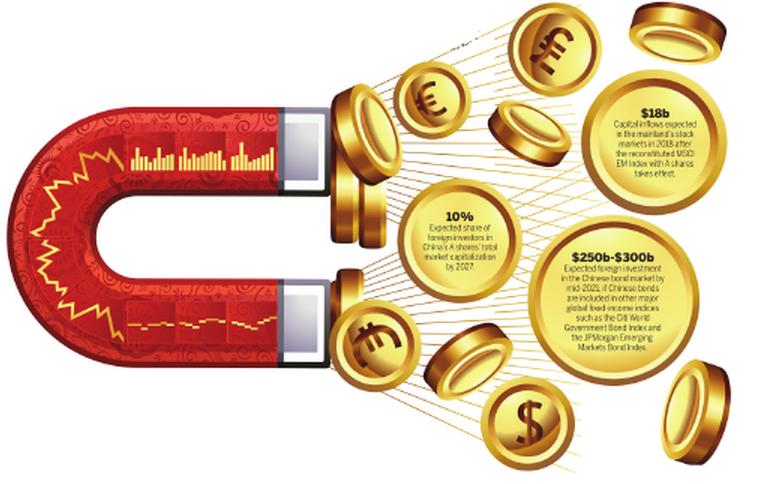What is foreign investment?

[vc_row][vc_column][vc_row_inner][vc_column_inner][vc_column_text]
What is foreign investment?
.
investment
.
These days, attracting foreign investors is one of the intellectual concerns of society. But what is the purpose of accepting foreign investor? Certainly, the acceptance of foreign investor in the country will help economic growth and development, increase job opportunities, acquire and develop technology and management skills, as well as increase the quality of products and export power of the country.
foreign investor means the flow of capital from one country to another and the granting of shares in the ownership of companies and assets of the host country. Foreign investors have an influential role in the management of the company according to the amount of investment.
There is a new trend towards globalization in which multinational corporations are investing in different countries. In general, foreign investor is the use of foreign capital in activities where the risk of return on investment and its benefits are borne by the investor.
.

[/vc_column_text][/vc_column_inner][/vc_row_inner][/vc_column][/vc_row][vc_row][vc_column][vc_column_text]
Types of foreign investor
.
Investment can be divided into two bases: the first based on the investor and the second based on the method of investment
.
According to the first view, investment is divided into two general categories:
.
A) Foreign public investment :
.
The kind of investment made by governments, in a specific sense, or by international organizations, such as some development or business projects that depend on the economic life of a country and are invested by the government.
[/vc_column_text][/vc_column][/vc_row][vc_row][vc_column][vc_column_text]
B) Foreign private investment:
.
This type of investment is made in a special sense by private individuals and legal entities and is one of the most important sources of investment, which is an important part of financing in developed countries. The main feature of this type of investment is profit and non-government intervention.
.
Be On the other hand, according to the second view, investment is divided into the following two cases :
.
Foreign direct investment
Foreign indirect investment
[/vc_column_text][/vc_column][/vc_row][vc_row][vc_column][vc_column_text]
Foreign Direct Investment (FDI)
.
This method is the most traditional type of foreign investor in that a natural or commercial legal entity from a particular country (opportunity capital country) provides and injects the necessary capital to carry out economic activities in another country (investable country). Foreign direct investment is a physical investment that includes the construction of a factory, the purchase of a building and other equipment required for the establishment of a company or project in a foreign country. This type of investment is considered as a long-term investment and causes economic growth in the host country. In order to have a correct understanding of (FDI) and to provide a more precise definition of it, we must refer to the resources of the Organization for Economic Cooperation and Development (OECD), which states: “International direct investment is a type of cross-border investment Which is carried out by a person resident in an economy (direct investor) in an economic institution residing in the investor’s respective economy (called a direct investment institution) with the aim of “sustainable interest” (meaning that the direct investor has At least 10% of the voting rights in the direct investor institution.)
[/vc_column_text][/vc_column][/vc_row][vc_row][vc_column][vc_column_text]
Types of foreign direct investment
.
Foreign direct investor is usually classified horizontally, vertically and independently. Horizontal investment refers to investors who conduct their business in a foreign country, for example, a US phone manufacturer, opens a store in China. Vertical investing means that the investor performs a different activity but related to his main job in another country, for example, to produce parts and raw materials for his product in another country. Independent investment is when a person or company invests in a foreign country in a project that is different and unrelated to the activity they are currently doing in their own country. Since this type of investment is in an industry in which the investor has never had experience, it is usually done in partnership with a foreign company that has worked in this industry.
.
Foreign Direct investor (FPI) or (Portfolio)
.
This type of foreign investor has less legal problems at the international level because even if it is significant in terms of volume and figure, the investor does not have a direct relationship with the country of investment.
[/vc_column_text][/vc_column][/vc_row][vc_row][vc_column][vc_column_text]
Indirect foreign investment often comes in two forms:
.
A) By purchasing participation bonds, which include the purchase of commercial documents, bank certificates of deposit, government bonds (for example, from Iranian assets that were seized by the United States government during a domestic court ruling). B) Through cash capital: which is the direct purchase of the company’s shares in foreign countries – the purchase of special shares that are offered for transfer.
[/vc_column_text][/vc_column][/vc_row]

یک نظر
[…] The Islamic tax model works on the basis of risk sharing. The customer and the risk bank share any investment with the agreed terms, and each shares a profit. The principle of usury is one of the most […]